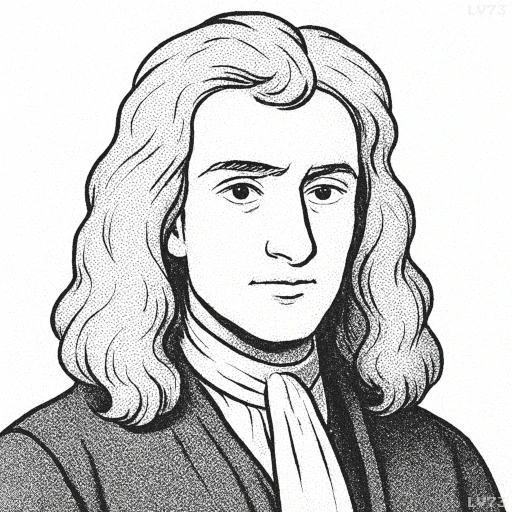“The ancients considered mechanics in a twofold respect: as rational, which proceeds accurately by demonstration, and practical. To practical mechanics all the manual arts belong, from which mechanics took its name.”

- January 4, 1643 – March 31, 1727
- Born in England (UK)
- Natural philosopher, mathematician, physicist, astronomer, theologian
table of contents
Quote
“The ancients considered mechanics in a twofold respect: as rational, which proceeds accurately by demonstration, and practical. To practical mechanics all the manual arts belong, from which mechanics took its name.”
Explanation
In this quote, Isaac Newton is drawing a distinction between two aspects of mechanics: the rational and the practical. He explains that the ancient Greeks and early philosophers saw mechanics not only as a field of theoretical study, based on mathematical demonstrations and logical proofs, but also as a practical discipline involving manual labor and the creation of tools and machines. The word “mechanics” originally referred to the skills and crafts involved in building and operating machines, but as Newton notes, it later came to encompass both theoretical principles and practical applications. This dual view reflects the ancient understanding of science and craftsmanship as intertwined and mutually reinforcing.
Newton’s statement highlights the evolution of mechanics from the work of craftsmen and engineers in antiquity to the more formalized and abstract study of forces, motion, and machines that developed during the Scientific Revolution. While the ancients may have focused more on practical construction and the application of tools, figures like Newton helped establish a more rigorous, theoretical foundation for mechanics. Newton himself revolutionized this field by applying mathematics to the understanding of motion and force, creating a unified framework that would later form the basis for modern classical mechanics.
In modern times, this distinction between rational and practical mechanics is still relevant. For example, engineering today integrates both theoretical mathematics and physics with the practical application of that knowledge to design machines, structures, and systems. The advancement of technology continues to rely on the interaction between theoretical principles and hands-on application, demonstrating the continued importance of both aspects of mechanics in shaping the world around us. Newton’s work laid the foundation for this balance, where science and engineering are inextricably linked.
Would you like to share your impressions or related stories about this quote in the comments section?
